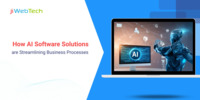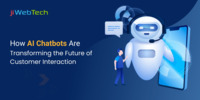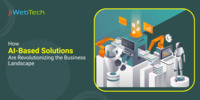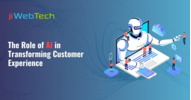- Jul 11, 2025
- Generative Ai
- 2123
Share this post on:
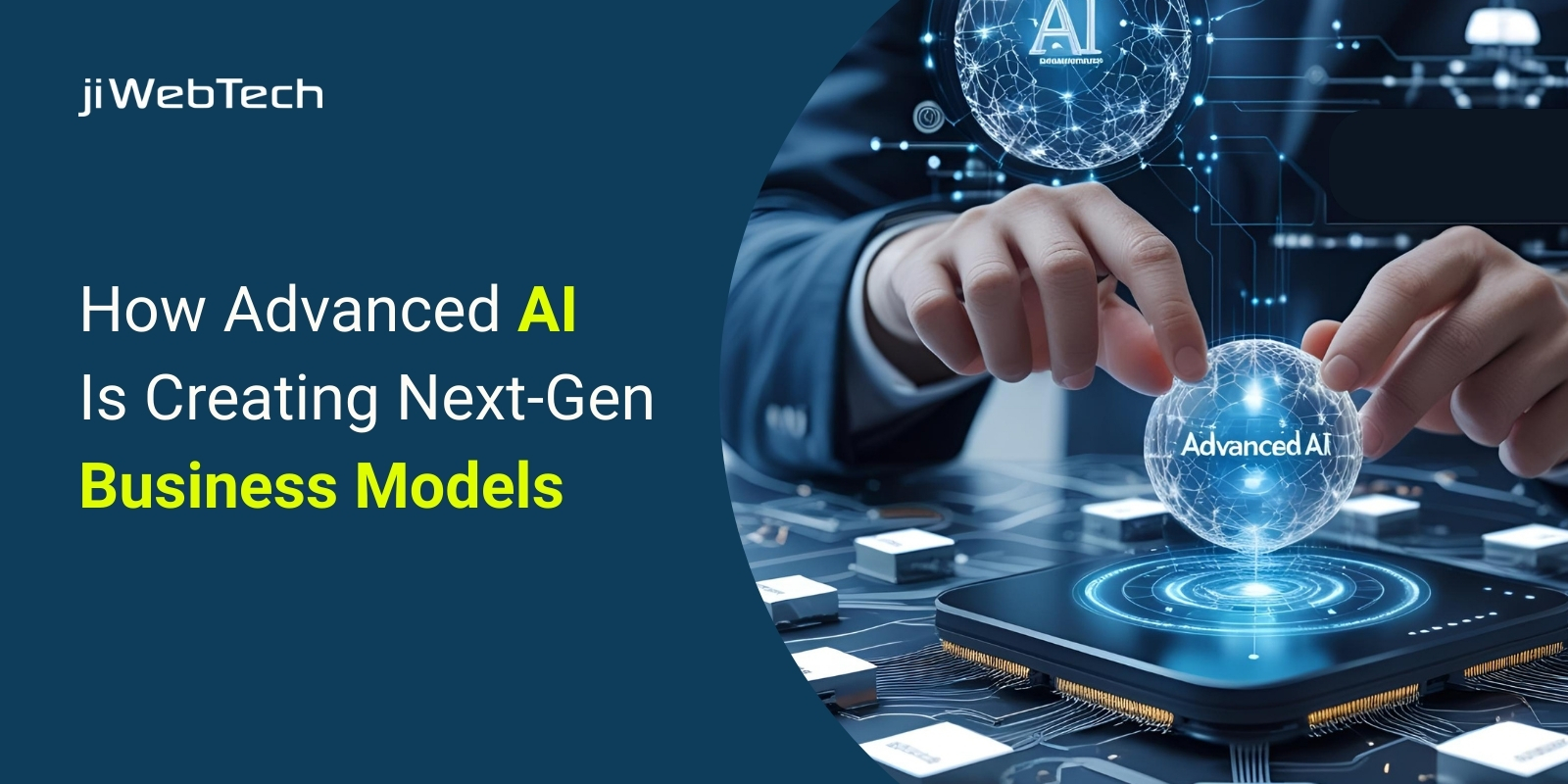
Artificial Intelligence is no longer a futuristic concept, but a reality in 2025. With GenAI, investments are projected to grow by 60% in the next three years. According to BGC’s survey, AI has become a priority for businesses, with a strong focus on generating great results. Most companies are exploring AI agents, marking 2025 as the turning point for the adoption of AI.
AI models are driving innovation, efficiency, and customization, enabling companies to unlock new revenue streams, optimize operations, and deliver exceptional customer experiences. In this blog, we will explore how advanced AI is developing next-gen business models, dive into the technologies involved, and learn how AI is transforming the future of industry.
Artificial Intelligence has transitioned from rule-based automation to Advanced AI systems that are capable of learning, reasoning, and generating creative content. This evolution has empowered businesses to rethink their traditional models fundamentally. Let us go deeper into the blog and learn more about how Advanced AI is developing next-gen business models.
Core AI Technologies Powering Next-Gen Business Models
The rapid advancement of artificial intelligence technologies has created a path for the development of innovative business models that were previously unimaginable. These core AI technologies form the backbone of next-generation business models by enabling intelligent automation, deep data-driven insights, and highly personalized customer interactions.
1. Machine Learning (ML): Machine learning is the process through which AI systems learn from historical data to identify patterns and make predictions or decisions without explicit programming. It is the most widely adopted AI technology across industries, powering everything from recommendation engines to predictive maintenance.
- Supervised Learning: This technique involves training models on labeled datasets where the input and output are known. For example, banks use supervised learning to detect fraudulent transactions by training models on historical fraud data.
- Unsupervised Learning: Here, the AI uncovers hidden patterns in unlabeled data. This is especially useful for customer segmentation, anomaly detection, and market basket analysis. Retailers use unsupervised learning to group customers based on purchasing behavior to tailor marketing campaigns.
- Reinforcement Learning: This approach enables AI to learn optimal strategies through trial and error by interacting with the environment. It’s widely applied in robotics, autonomous vehicles, and dynamic pricing models.
2. Natural Language Processing (NLP): NLP enables machines to understand, interpret, and generate human language, both written and spoken. Its advancements have transformed customer service, marketing, and business intelligence.
- Conversational AI: Virtual assistants and chatbots powered by NLP can engage in complex, multi-turn conversations, providing personalized support and reducing the need for human agents. For example, banks deploy chatbots to handle millions of customer inquiries efficiently.
- Sentiment Analysis: Businesses analyze customer feedback, social media posts, and reviews to gauge public sentiment, enabling proactive brand management andproduct improvements.
- Automated Content Generation: NLP models generate reports, product descriptions, and marketing copy, speeding up content creation and enabling hyper-personalization.
3. Generative AI: Generative AI models synthesize new data—text, images, audio, or video, based on learned patterns from large datasets. This technology is revolutionizing creative industries and marketing by enabling scalable, customized content creation.
- Marketing and Advertising: AI generates personalized advertisements and social media content tailored to individual customer profiles.
- Product Design: Designers use generative AI to create prototypes and digital assets, accelerating innovation cycles.
- Synthetic Data Generation: AI creates realistic synthetic datasets for training other AI models, mainly in sensitive domains like healthcare.
4. Computer Vision: Computer vision systems interpret and analyze visual data such as images and videos, enabling automation of tasks that require sight.
- Quality Control: Manufacturing plants use computer vision to detect defects on production lines with higher accuracy and speed than human inspectors.
- Retail Analytics: Stores analyze foot traffic, shelf stocking, and shopper behavior to optimize layouts and promotions.
- Security and Surveillance: Facial recognition and anomaly detection enhance security protocols.
- Autonomous Systems: Self-driving cars and drones rely heavily on computer vision for navigation and obstacle avoidance.
5. Deep Learning: Deep learning, a subset of machine learning, uses multi-layered neural networks to model complex, high-dimensional data. It excels in understanding unstructured data such as images, audio, and text.
- Speech Recognition: Powering voice assistants like Alexa and Google Assistant.
- Image and Video Analysis: Enabling advanced computer vision applications.
- Natural Language Understanding: Improving accuracy and nuance in NLP applications.
Transformative Business Models Enabled by AI
Advanced AI technologies are not merely improving traditional business processes—they are enabling entirely new business models that redefine how companies create and deliver value.
a) Hyper-Personalization at Scale: Hyper-personalization leverages AI to tailor products, services, and communications to individual customer preferences in real-time, far beyond traditional segmentation.
- Retail and E-commerce: AI analyzes browsing history, purchase patterns, and even social media activity to recommend products uniquely suited to each customer. Amazon’s recommendation engine, which drives a significant portion of sales, is a prime example.
- Media and Entertainment: Streaming platforms like Netflix and Spotify curate content dynamically based on user preferences, mood, and context, increasing user engagement and retention.
- Financial Services: Robo-advisors provide personalized investment portfolios tailored to individual risk appetites and financial goals.
This model increases customer satisfaction, loyalty, and lifetime value by making every interaction relevant and timely.
b) Predictive Analytics and Decision Intelligence: Predictive analytics uses AI to forecast future events, enabling businesses to anticipate customer needs, market trends, and operational challenges.
- Supply Chain Optimization: AI forecasts demand fluctuations and supply disruptions, allowing companies to adjust inventory and logistics proactively.
- Healthcare: Predictive models forecast patient admissions and disease outbreaks, optimizing resource allocation.
- Finance: AI-driven risk models anticipate credit defaults and market volatility, enabling better portfolio management.
c) Autonomous Products and Services: AI powers products and services that operate independently or with minimal human intervention.
- Autonomous Vehicles: Tesla’s self-driving capabilities and Waymo’s autonomous taxis are transforming transportation.
- Smart Home Devices: Devices like Amazon Echo learn user habits to automate lighting, temperature, and security.
- Robotic Process Automation (RPA): Automates back-office functions such as invoicing, compliance checks, and customer onboarding.
d) Subscription Models: AI capabilities are increasingly offered as cloud-based services, enabling businesses to integrate AI without heavy upfront investment.
- AI-Powered SaaS Platforms: Tools like Salesforce Einstein and Microsoft Azure AI provide predictive analytics and automation on demand.
- Subscription Services: Automakers like BMW offer AI-driven driver assistance features as monthly subscriptions, creating recurring revenue streams.
- Continuous Learning Services: AI systems that improve over time provide ongoing value, fostering long-term customer relationships.
e) Data Monetization: Companies leverage AI to transform raw data into valuable insights that can be monetized.
- Insight-as-a-Service: Selling predictive analytics or market intelligence to other businesses.
- Platform Ecosystems: AI connects producers, consumers, and partners in marketplaces, creating network effects and collaborative value creation.
How AI Enhances Customer Experience
Customer experience has become a pivotal competitive differentiator, and AI is revolutionizing how businesses engage with their customers.
1. 24/7 Intelligent Support: AI-powered chatbots and virtual assistants provide round-the-clock customer service, handling routine inquiries instantly and freeing human agents for complex issues. These systems understand context and intent, enabling natural, satisfying interactions.
2. Hyper-Personalized Engagement: AI analyzes customer data in real-time to deliver personalized recommendations, offers, and content. This relevance increases conversion rates and customer loyalty.
3. Omnichannel Consistency: AI integrates across channels websites such as mobile apps, social media, andvoice assistants, ensuring seamless experiences regardless of how customers interact.
4. Proactive Service: Predictive AI anticipates customer needs and issues, enabling businesses to offer solutions before problems arise, such as proactive maintenance alerts or personalized product suggestions.
The Future of AI-Driven Business Models
The future of AI-driven business models is poised for exponential growth and sophistication, shaped by emerging trends and technological breakthroughs.
1. Multimodal AI: Multimodal AI creates user experiences and deeper insights by combining text, images, audio, and video understanding. For instance, customer support AI can easily analyze complaints, facial expressions, and chat history to offer better assistance.
2. Explainable and Ethical AI: As AI decisions impact major areas of our lives, transparency, fairness, and accountability become essential. Explainable AI helps businesses comply with regulations and develop trust by making AI’s reasoning understandable.
3. Edge AI: Processing AI workloads locally on devices reduces latency and enhances privacy, enabling applications like autonomous vehicles, smart factories, and personalized healthcare.
4. Human-AI Collaboration: AI increases human decision-making, creativity, and supports new workflows where humans and AI systems can collaborate easily.
Conclusion:
In conclusion, Advanced AI is a game-changer, reshaping how businesses develop and capture value. It enables the development of next-generation business models that are more intelligent, adaptive, and customer-centric. Embracing AI allows companies to innovate faster, optimize operations, and deliver exceptional experiences.While there are a lot of challenges, the rewards are high. With this, one thing is clear—the future belongs to those who opt for AI and reinvent their model and live in an increasingly digital world.
jiWeb Technologies is a leading software solutions provider company empowered by AI. If you're looking to enhance your business with AI, we're here to help. Our team of AI developers has helped multiple business owner grow their businesses. Also, our AI solution, such as ai.jiweb.in, is helping businesses simplify their operations.
Want to learn more? Contact us today.






